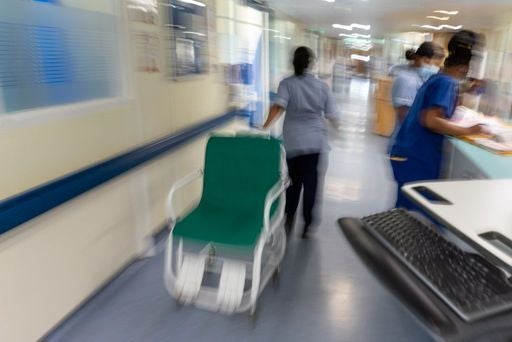
A group of heart failure patients have seen their condition spontaneously reversed in “an unprecedented case”.
Each of the three men suffered heart failure due to cardiac amyloidosis – a build-up of toxic proteins in the heart which makes it difficult for the organ to work properly.
The chronic disease gets worse over time, sometimes proving fatal, and has been considered irreversible until now.
Scientists from University College London (UCL) and the Royal Free Hospital performed medical tests on the men, aged 68, 76 and 82, after reports that their symptoms were improving.
Scans showed some toxic proteins had cleared from their hearts, which appeared to be recovering from the disease.
The team also found promising evidence of antibodies that specifically targeted these proteins.
Further tests revealed that these antibodies were not found in other patients whose condition progressed as normal.
Medical professionals hope that the findings could lead to new treatments for the condition.

Lead author Professor Marianna Fontana, of UCL Division of Medicine, said: “We have seen for the first time that the heart can get better with this disease.
“That has not been known until now and it raises the bar for what might be possible with new treatments.”
In the study, the researchers looked at a specific type of the condition which is caused by the build-up of a blood protein called transthyretin (TTR).
In the UK, this variation, known as ATTR-CM, is currently unknown due to potential under-diagnosis and under-reporting.
The researchers looked at records from 1,663 patients with the condition after one of the men, aged 68, said his symptoms were improving.
Two more cases of improvement were identified and confirmed through blood tests, scans and medical imaging techniques.
The team found antibodies in the three patients that bound specifically to ATTR amyloid deposits in mouse and human tissue in the lab.
The researchers said that harnessing these antibodies could help clear away the toxic proteins and potentially reverse the condition.
Scientists led by Professor Julian Gillmore, of UCL Division of Medicine, are investigating a gene-editing therapy that could stop cardiac amyloidosis from progressing.
Early results of the trial indicate it may stop disease progression, the team said.
Prof Gillmore, who is also head of the UCL Centre for Amyloidosis based at the Royal Free Hospital, said: “Whether these antibodies caused the patients’ recovery is not conclusively proven.
“However, our data indicates that this is highly likely and there is potential for such antibodies to be recreated in a lab and used as a therapy.
“We are currently investigating this further, although this research remains at a preliminary stage.”
The findings were published in the The New England Journal of Medicine.
Jon Spiers, CE of the Royal Free Charity which supported the study, said: “This work not only represents a major breakthrough in our understanding of cardiac amyloidosis, but crucially opens up new possibilities for more effective treatment options.”







